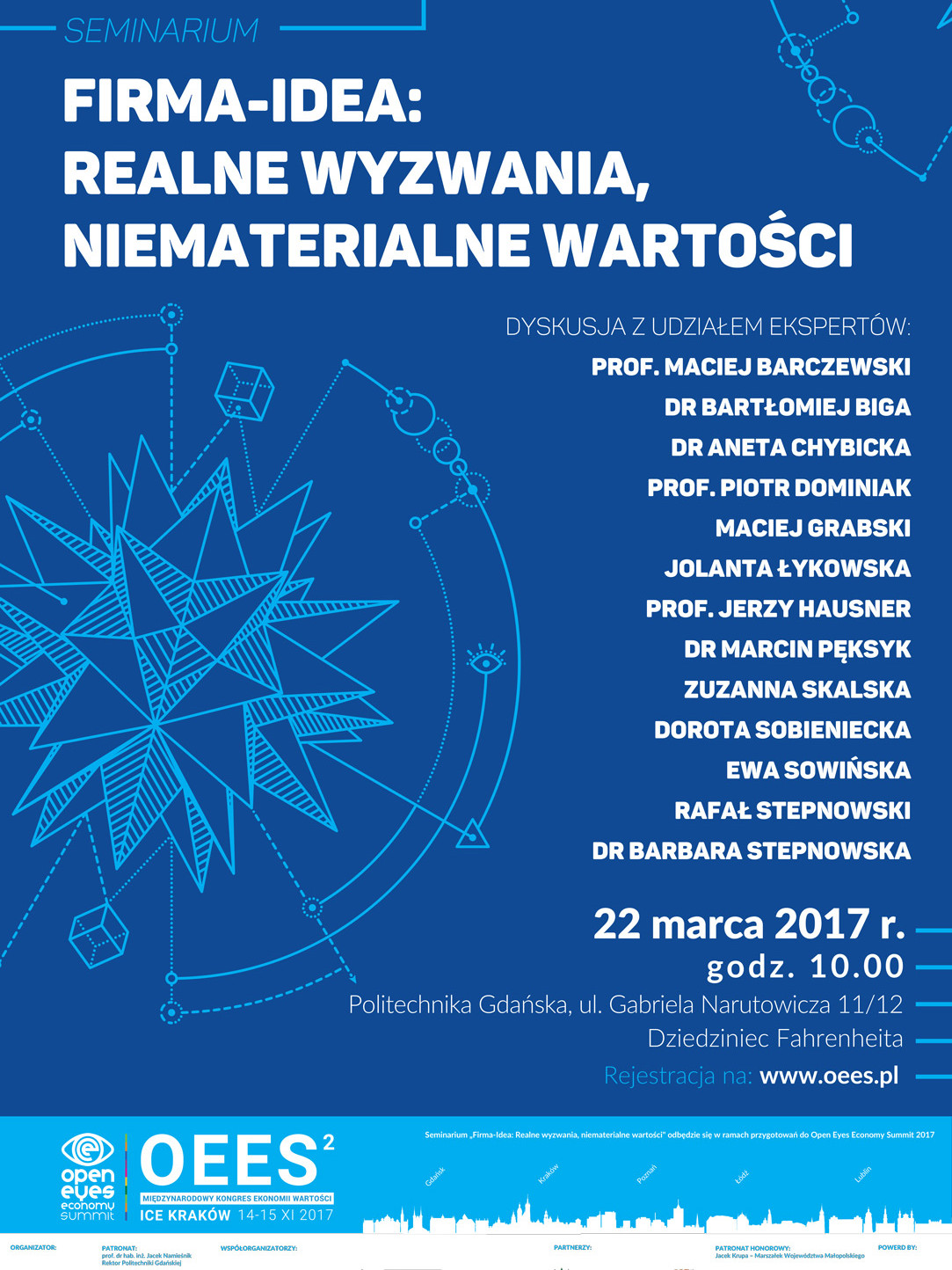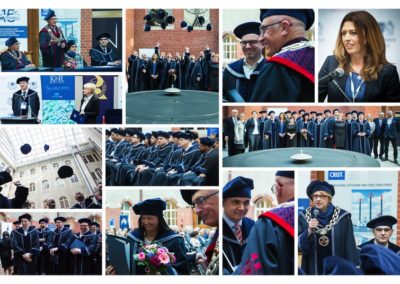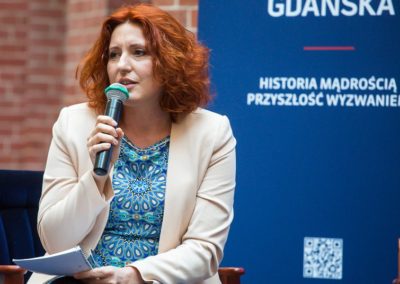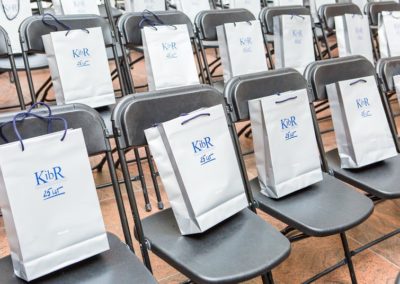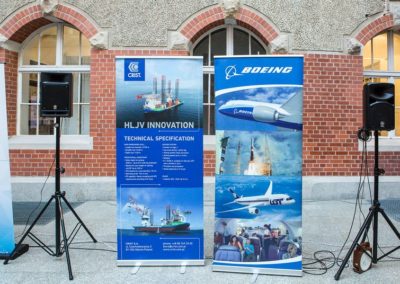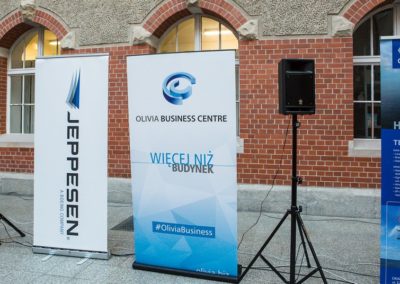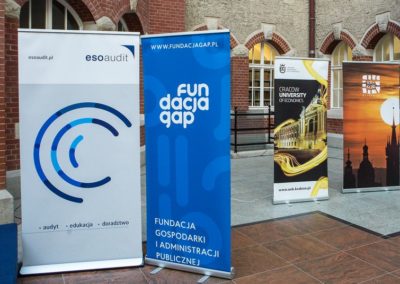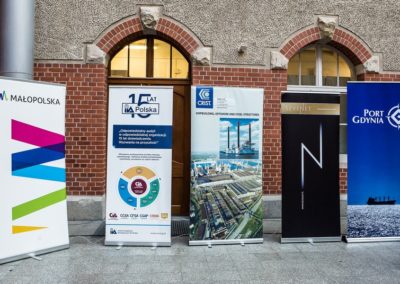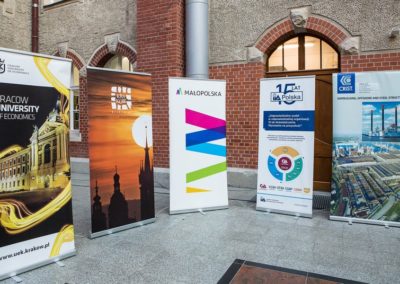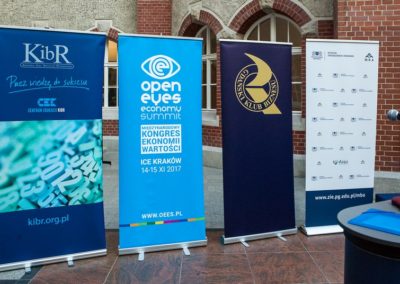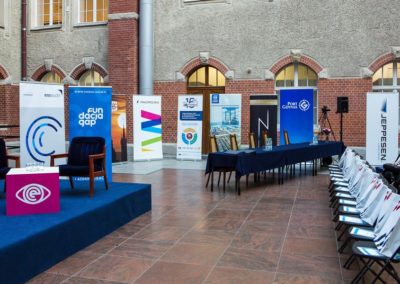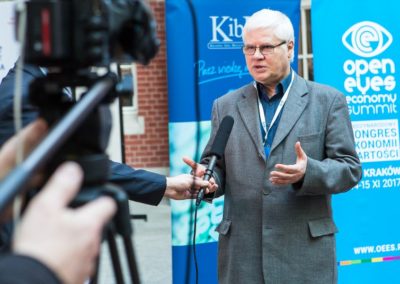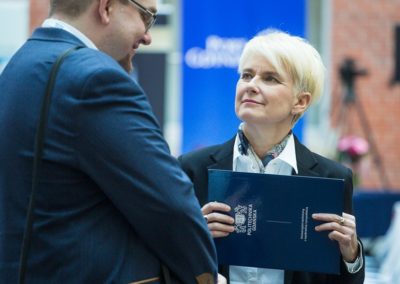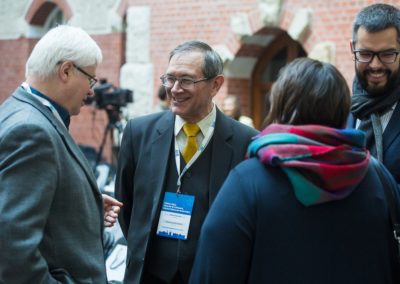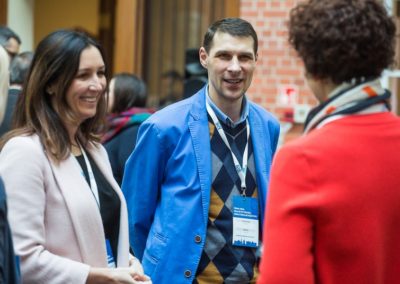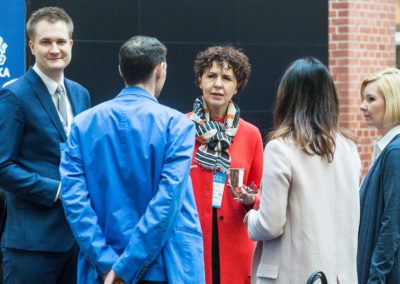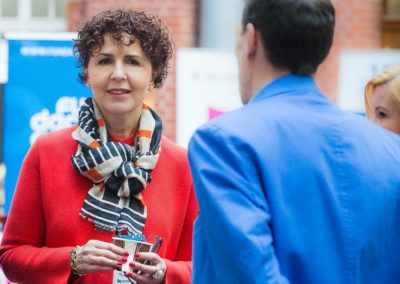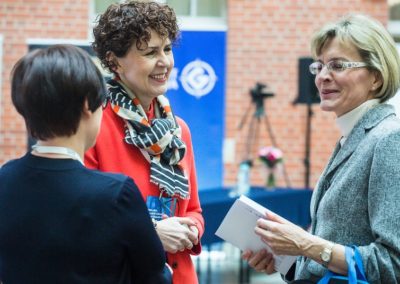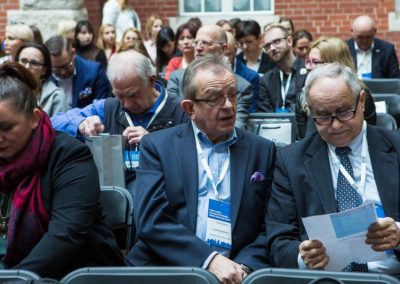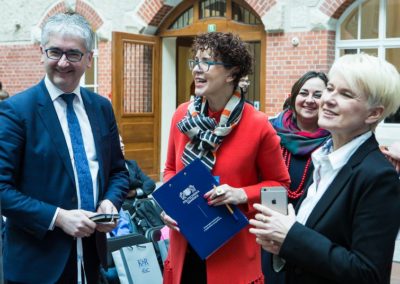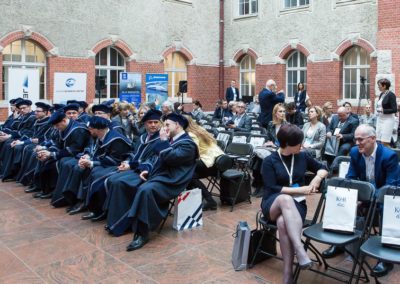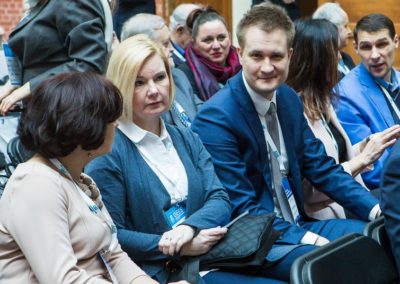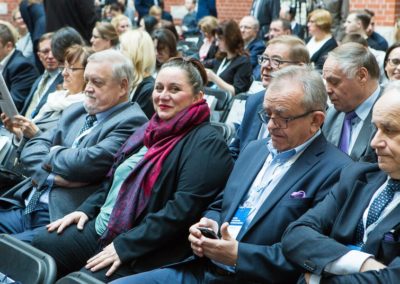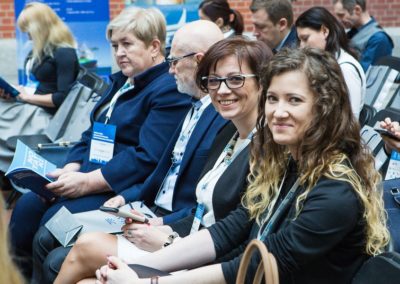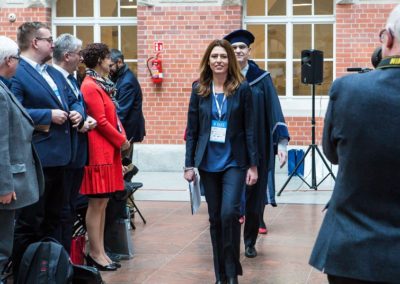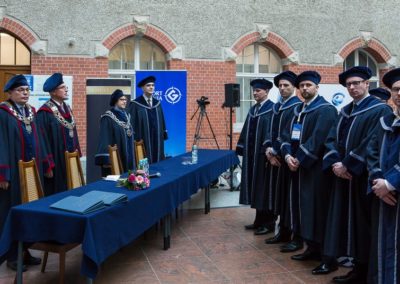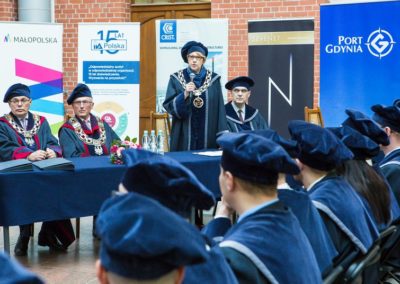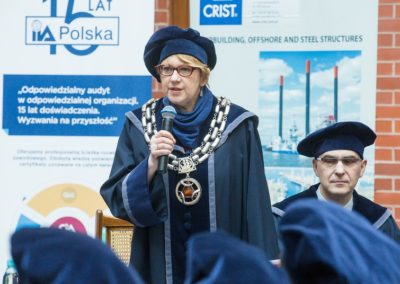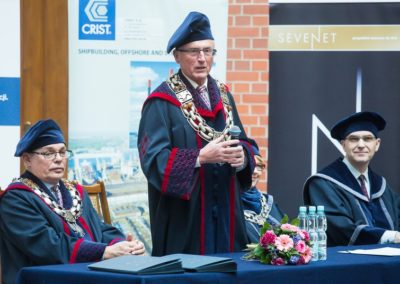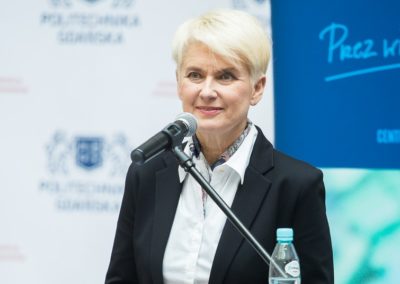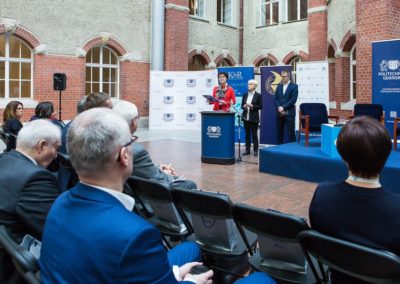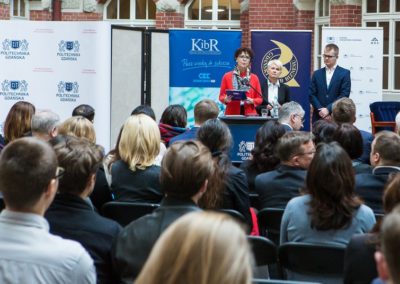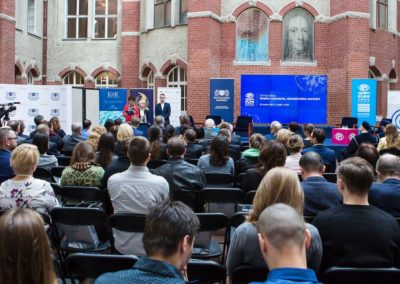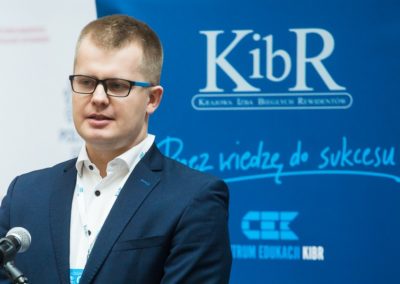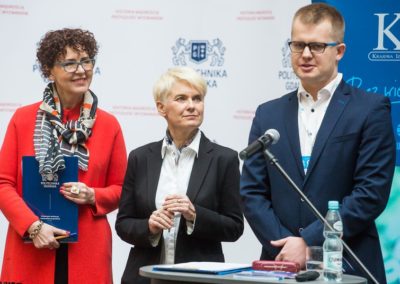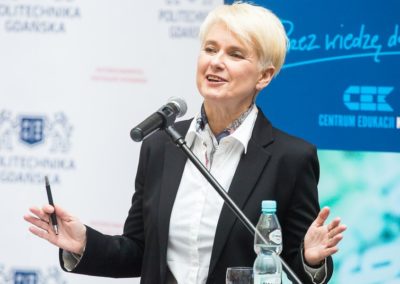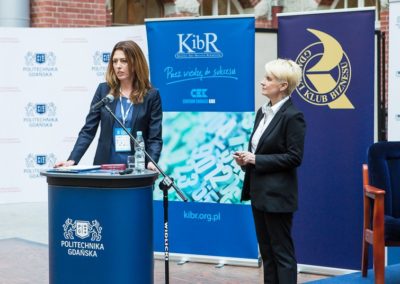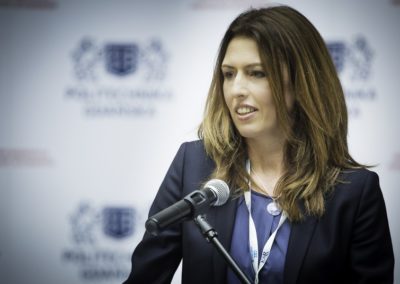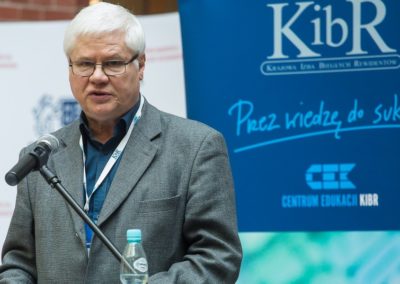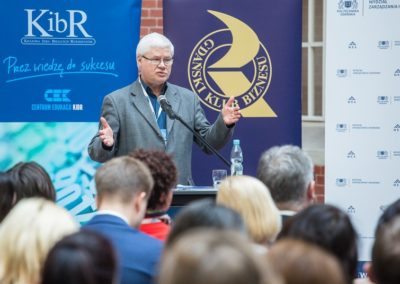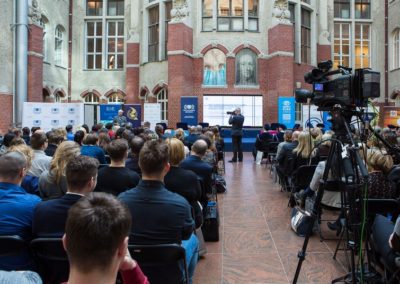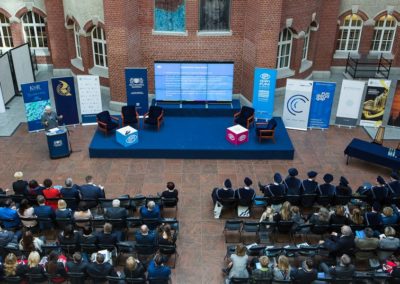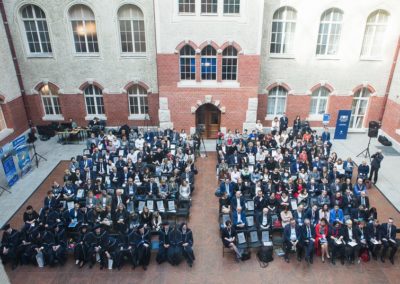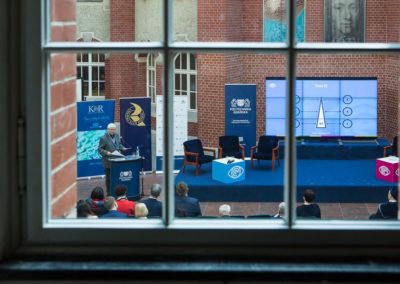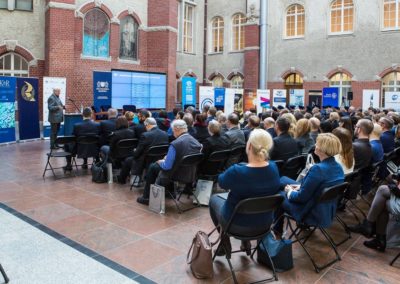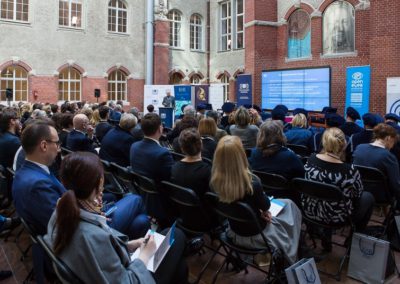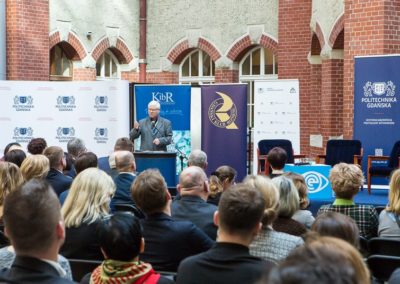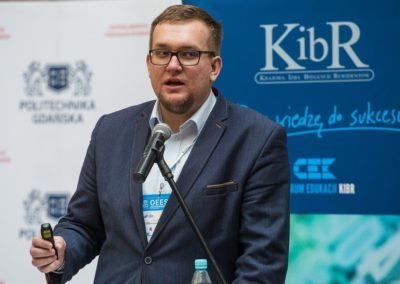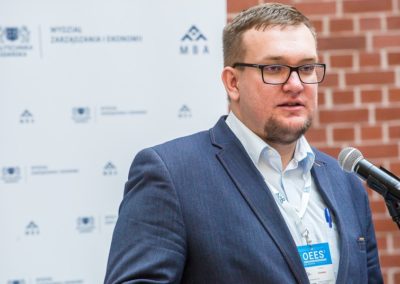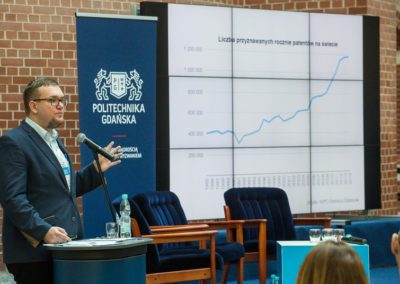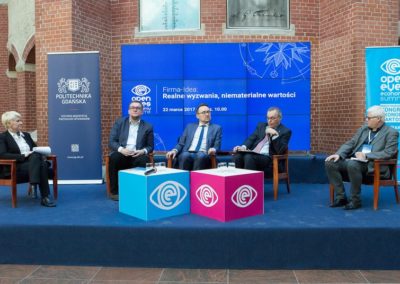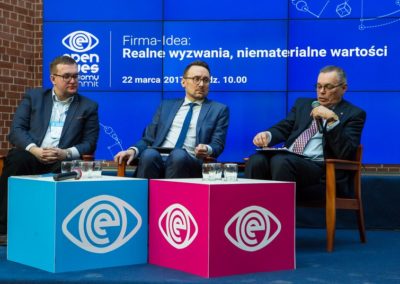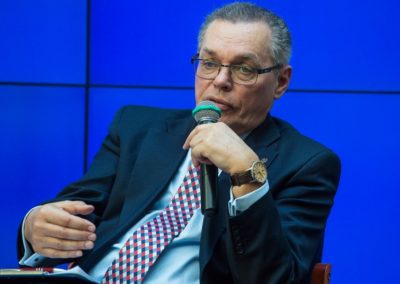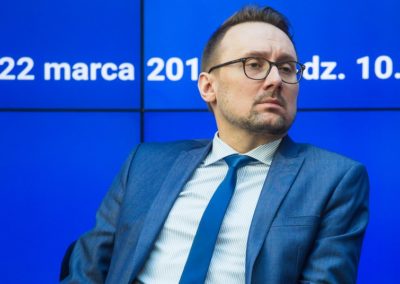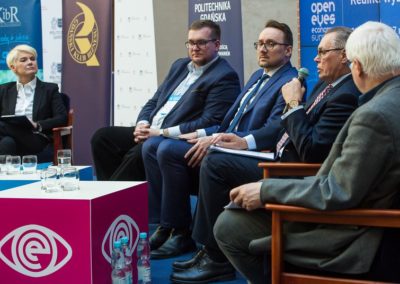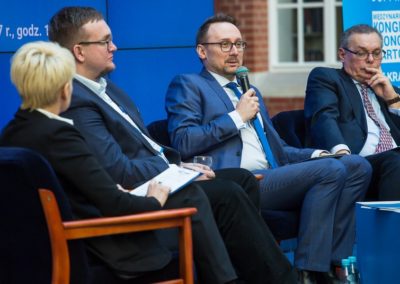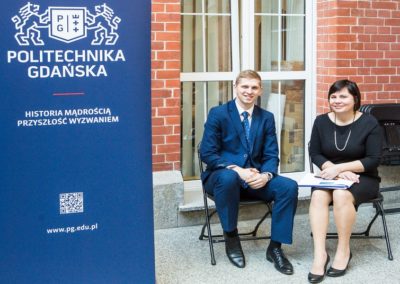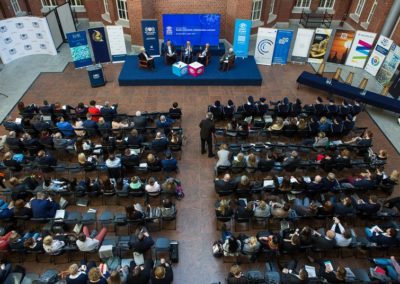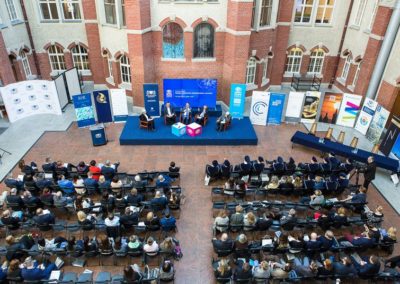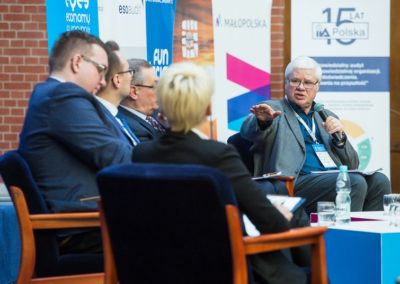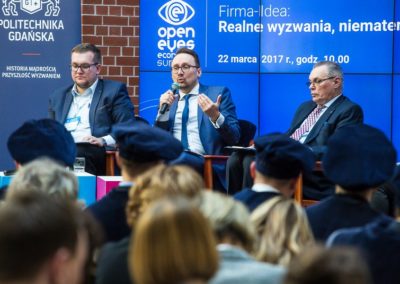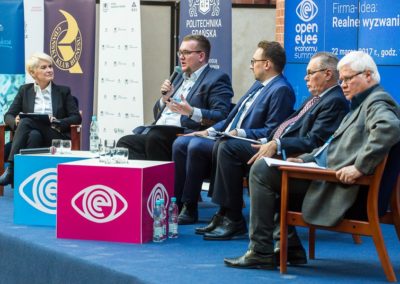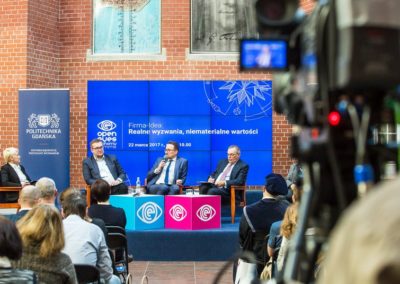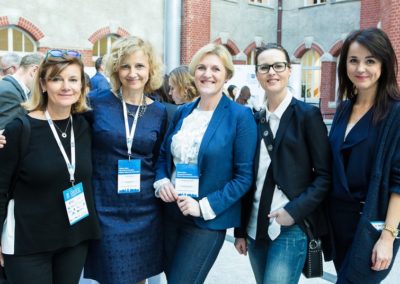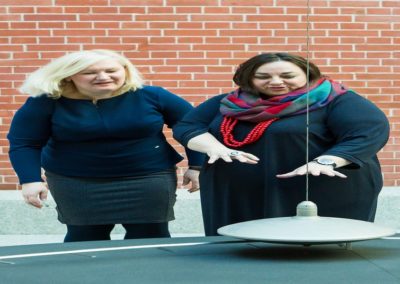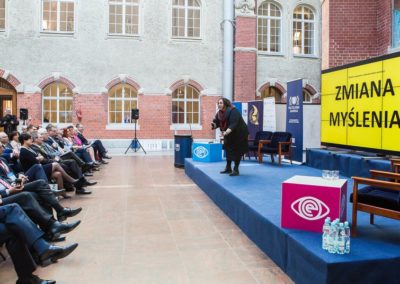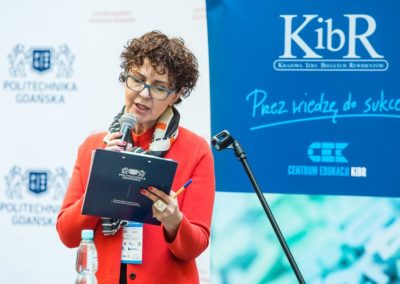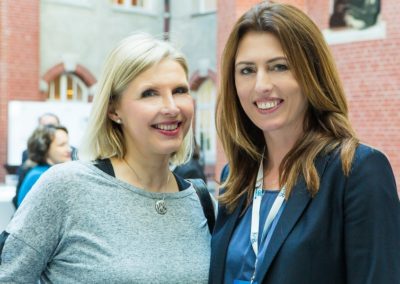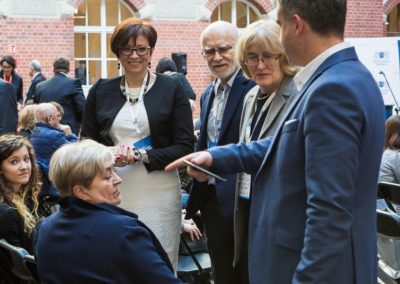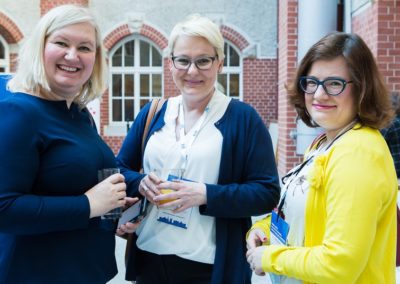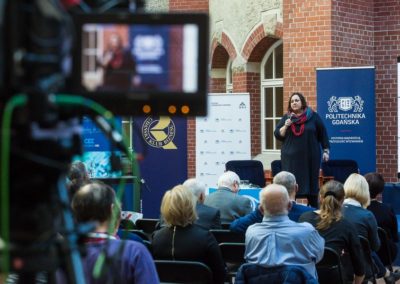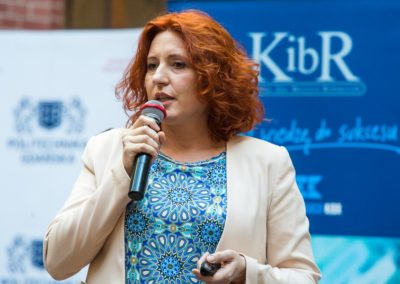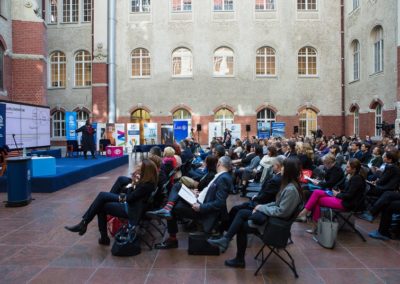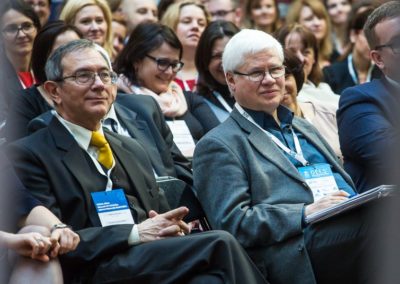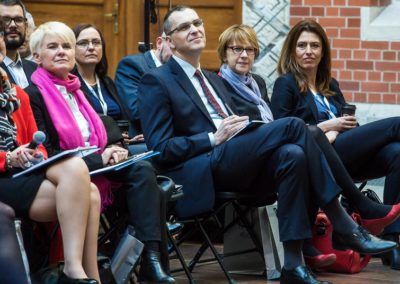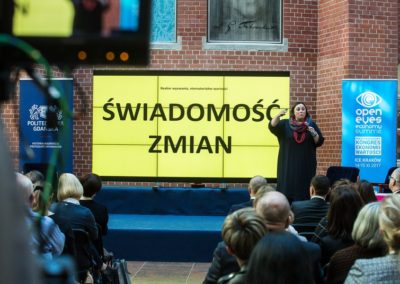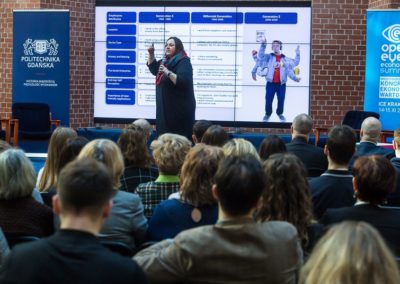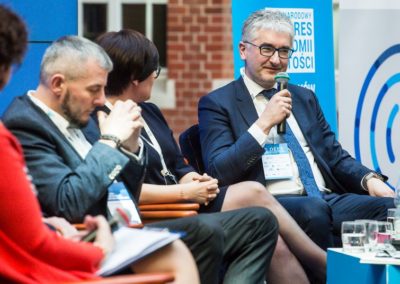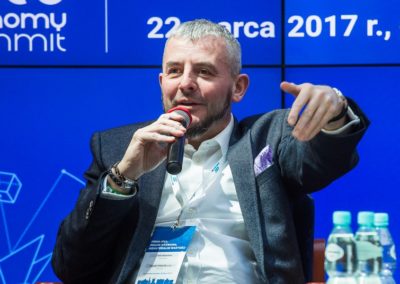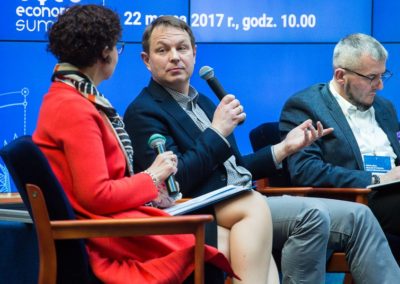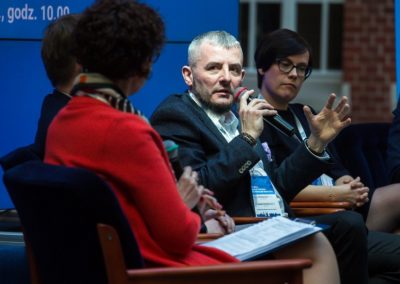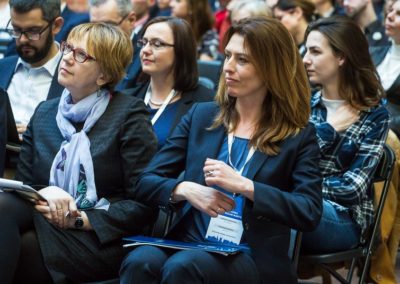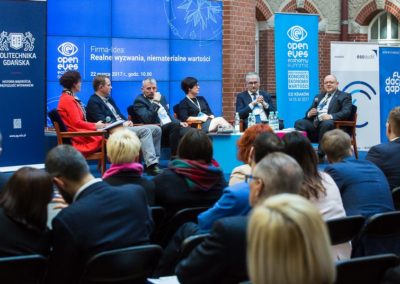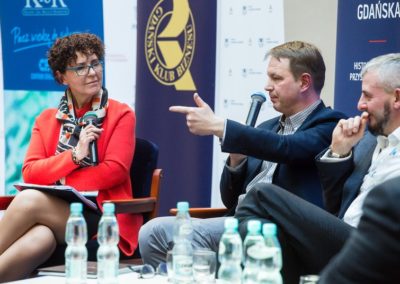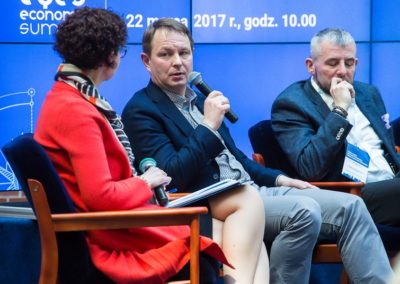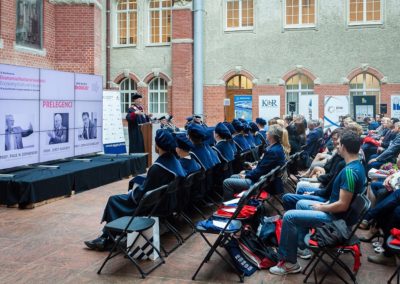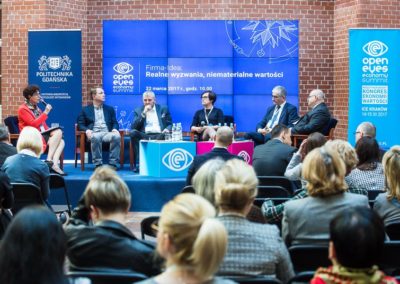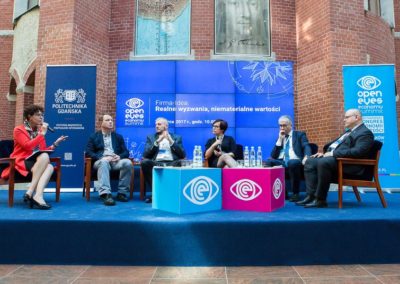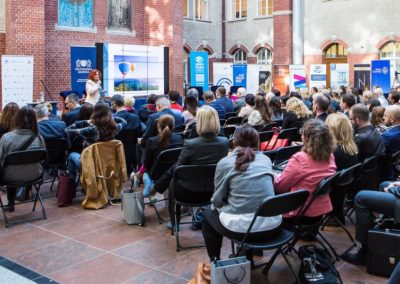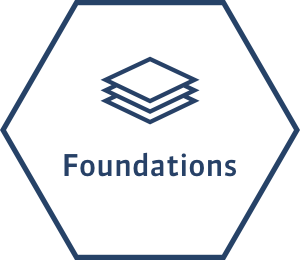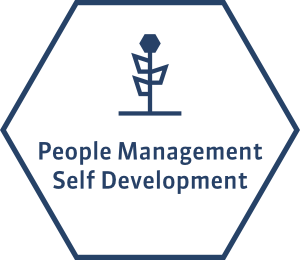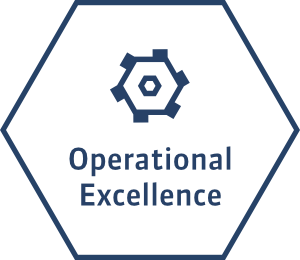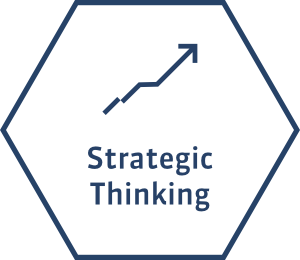Firm Idea: Real Challenges, Intangible Values – 22.03.17
Intellectual capital management was the subject of the seminar “Firm Idea: Real Challenges, Intangible Values”, organized on the initiative of the Advisory Board of the Faculty of Management and Economics. Lawyers, economists, business practitioners and scientists exchanged experiences and views on new management concepts. Over 250 people attended the debate.
The seminar was opened by Prof. Julita Wasilczuk, Dean of the Faculty of Management and Economics. The lecture and discussion preceded the ceremony of awarding diplomas to graduates of MBA studies at the Faculty of Management and Economics by the Rector of Gdansk University of Technology, Prof. Jacek Namieśnik.
According to Dr. Barbara Stepnowska, the director of MBA studies, the most valued asset for businesses and the economy are informed, creative employees, equipped with the latest knowledge and the skill of fast learning.
They will come up with products that respond to the real needs of users and design processes that support environmental sustainability rather than violate them. They will build a dialogue in which the key will be trust and responsibility, and at the centre will be not the consumer or the customer but simply the person, said Dr. Stepnowska.
The introductory lecture was delivered by Prof. Jerzy Hausner, Chairman of the OEES Programme Board and the founder of the firm idea. He emphasized that we are no longer living in an era of change, but in changing circumstances during which we need to rethink basic concepts. Single-idea companies are like islands. They should create their own environment: archipelagos and strong clusters, which will allow for changing the nature of the market game.
Dr Bartłomiej Biga from the Kraków University of Economics, an expert from the Jagiellonian Club Analysis Centre, introduced listeners to the field of intangible assets. According him, in spite of the predominant role of intangible assets, still have not been developed satisfactory tools for measuring and valuing them.
– Economists do not know exactly what is going on, because the measurements on which they rely are only part of the economic activity. The bookkeepers see only a partial picture of the state of the company because they have not developed tools to track and evaluate resources that they cannot touch or spend. Investors are groping. It is time to change it. – said Dr. Biga.
Professor Piotr Dominiak, Vice-Rector of Gdansk University of Technology for Internationalization and Innovation, noted the problem of sharing knowledge created in universities.
On the one hand, we are under pressure to publish new knowledge free, and on the other, the emphasis is on commercialization. Employees have to publish as much as possible, increasing the number of citations. At the same time we want their knowledge to sell and to patent. Finding a compromise path between these approaches is a big challenge, said Prof. Dominiak during discussions between representatives of the scientific world, moderated by Dorota Sobieniecka from Gdansk Business Club, a member of the WZiE Advisory Board. In this part, following Prof. Hausner and Prof. Dominiak, Dr hab. Maciej Barczewski, Prof. UG (University of Gdańsk, Centre for Intellectual Property Law) and Dr. Bartłomiej Biga (Kraków University of Economics) also spoke.
The need to inform the environment about the non-financial side of a company’s activity is not just a voluntary choice by a company, but is actually a statutory requirement for a certain group of major companies. This is also the expectation of stakeholders, said Ewa Sowińska, Vice-President of the National Council of Statutory Auditors and member of the Advisory Board of the WZiE and Open Eyes Economy, opening a panel discussion with the participation of entrepreneurs. How to include information on intangible assets in the balance sheet and how to verify whether the company reports truthfully and shows the actual image of the organization are the real challenges faced by entrepreneurs today, she said.
Participants in the discussion not only attempted to define the concept of intangible assets, but also addressed the issues that represent the success of a company today: innovation, organizational culture and the shift in focus from a profit-oriented to a human-oriented environment, and cooperation. The companies that see this change first will win.
The second part of the event was started by trend analyst Zuzanna Skalska and Dr. Aneta Chybicka, psychologist and Director of the City Institute. The seminar closed the panel discussion under the slogan “The end of the capital we know, the time of Firm Idea”. Rafał Stepnowski, Vice President of Boeing Digital Aviation, Maciej Grabski, President of Olivia Business Center, Jolanta Łykowska, Financial Director of Oceanic, Szczepan Kniter, President of Trefl, and Marcin Pękic, specialist in the valuation of enterprises with special attention to intangible assets took part. Panellists discussed innovation and intangible capital management.
The seminar attracted great interest. Over 250 people attended and registration ended two weeks before the event. The broadcast was watched by more than 200 people.
We invite you to view the photo gallery of the event.
The event is part of preparations for the second edition of the Open Eyes Economy Summit 2017, which will be held on 14-15 November 2017 at ICE Kraków.
The organizers of the event were the Foundation for Economy and Public Administration, the National Chamber of Statutory Auditors, the MBA Programme of the Faculty of Management and Economics of Gdansk University of Technology, the University of Economics in Krakow and the Gdansk Business Club.
The patronage of the conference was taken by prof. Jacek Namieśnik, Rector of Gdansk University of Technology, and honorary patronage was held by Jacek Krupa, Marshal of the Małopolska Region.
